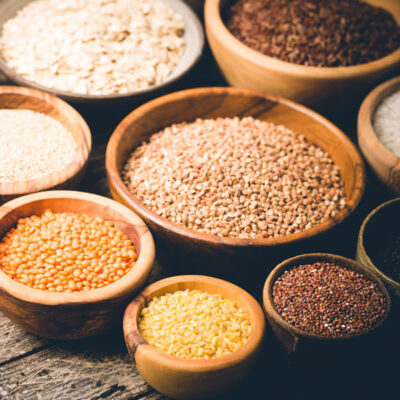What is Whey Isolate Protein Powder
Author: admin Date Posted:6 August 2024

A detailed look at Whey isolate protein powder and its uses. Whey isolate protein powder is highly beneficial for athletes and fitness enthusiasts wishing to enhance muscle growth and muscle recovery.
Whey isolate protein powder is a highly refined form of protein that caters to fitness enthusiasts and individuals seeking a premium source of protein in their diet. This article will explore why it is the most popular choice for high-performance protein powder.
What is Whey Protein?
Whey protein is a complete protein derived from milk. Often a by-product of the cheese-making process, it contains all nine essential amino acids necessary for the human body, making it an excellent source of high-quality protein. It is a highly digestible protein and is absorbed quickly compared to other proteins, making it a favourite among athletes, bodybuilders, and those who need enhanced muscle repair and growth.
Whey protein comes in several forms, including whey concentrate, whey isolate, and whey hydrolysate, each varying in protein content, lactose, and fat.
How does whey protein isolate differ from other forms of whey protein?
Whey protein isolate differs significantly from other forms of whey protein due to its processing and composition.
Unlike whey concentrate and hydrolysate, whey isolate undergoes an extensive filtration process that removes more fat and lactose, resulting in a product that contains 90% or more protein by weight. This makes whey isolate an ideal choice for those looking to minimize calorie intake while maximizing protein consumption. The reduced lactose content makes it more suitable for individuals with intolerance or sensitivity.
Due to its higher purity, whey isolate is often considered a superior option for muscle repair and growth, offering a quick and efficient protein source that supports recovery and performance.
How is whey protein isolate made?
The production of whey protein isolate involves several steps to increase its protein content while reducing fats, carbs, and lactose.
Initially, liquid whey is separated from the curds during the cheese-making process. This liquid whey undergoes microfiltration or ultrafiltration to remove fats and lactose, producing whey concentrate. The concentrate is then processed further through a cross-flow microfiltration system. This keeps the proteins intact while eliminating additional fat and lactose, resulting in whey protein isolate which is 90% or more protein by weight.
Finally, the isolate is dried into a powder form for easy consumption. This meticulous process ensures that whey protein isolate provides a high-quality, lactose-reduced protein supplement ideal for those with dietary restrictions or intensive muscle-building goals.
The Benefits of Whey Isolate Protein Powder
Whey isolate protein powder is particularly beneficial for athletes and fitness enthusiasts aiming to enhance muscle growth and recovery. Its high protein content, along with low levels of fat and carbohydrates, make it an excellent supplement for those looking to increase lean muscle mass without adding unwanted calories.
The rapid absorption rate of whey isolate ensures prompt delivery of amino acids to muscles, which is critical for repairing and rebuilding muscle fibres after strenuous workouts. Furthermore, its low lactose content means it's easily digested, minimizing the risk of gastrointestinal discomfort often associated with dairy-based supplements.
Beyond muscle recovery, whey isolate can also support weight management by promoting satiety and reducing hunger. This makes it valuable to any nutrition plan for achieving or maintaining a healthy weight.
Key nutrients found in whey isolate
Whey isolate protein powder is celebrated for its high protein content and rich supply of essential nutrients beneficial to health and fitness. Among these nutrients are:
- Branched-Chain Amino Acids (BCAAs): Including leucine, isoleucine, and valine, which are crucial for muscle protein synthesis and recovery.
- Essential Amino Acids: Supplies all nine essential amino acids that the body cannot produce alone.
- Calcium: Important for bone health and function.
- Iron: A component of haemoglobin within red blood cells and myoglobin in muscle cells, iron plays a key role in oxygen transport and storage.
- Potassium: Vital for muscle contractions and nerve signalling.
- Magnesium: Supports muscle and nerve function, blood glucose control, and blood pressure regulation.
- Phosphorus: Helps in the formation of bones and teeth, and is necessary for the body to make protein for the growth, maintenance, and repair of cells and tissues.
Key health benefits of whey isolate
Whey isolate offers several health benefits, making it a preferred choice for fitness enthusiasts, athletes, and health-conscious individuals. Some of the key health benefits include:
- Muscle Growth and Recovery: Whey isolate is rich in protein and amino acids, facilitating muscle growth, repair, and recovery post-exercise.
- Weight Management: Its ability to promote satiety can help reduce overall calorie intake, supporting weight loss and maintenance efforts.
- Enhanced Immune System: Contains immunoglobulins and lactoferrin that help strengthen the immune system.
- Improved Bone Health: The calcium content in whey isolate supports the development and maintenance of strong bones.
- Lower Blood Pressure: Studies have shown that dairy proteins like those found in whey isolate can contribute to the reduction of high blood pressure, hence supporting cardiovascular health.
- Antioxidant Support: Rich in cysteine, which boosts the production of glutathione, a powerful antioxidant that reduces oxidative stress and supports overall health.
Is Whey Isolate Protein Powder Suitable for Individuals with Lactose Intolerance?
Whey isolate protein powder is generally considered suitable for individuals with lactose intolerance, mainly because it undergoes a process that significantly reduces the lactose content.
Unlike whey concentrate, whey isolate is further processed to remove most fat and lactose. This intensive filtration process leaves only a minimal amount of lactose, making it a viable choice for those with lactose sensitivity or intolerance.
It is important to note that individual responses to lactose can vary significantly, so lactose-intolerant individuals should start with small amounts of whey isolate to assess their tolerance. In cases of severe lactose intolerance, consulting a healthcare provider before incorporating whey isolate into the diet is recommended.
Can Whey Isolate Protein Powder be Incorporated into a Vegetarian or Vegan Diet?
Whey isolate protein powder can be incorporated into a vegetarian diet as it is derived from milk, which is permissible in most vegetarian dietary practices. However, it is not suitable for a vegan diet since vegans exclude all animal products, including dairy, from their diets.
Those adhering to a vegan lifestyle may need to explore plant-based protein alternatives such as pea, rice, or hemp protein powders. Find out more in our article 'What is the best vegan protein powder?'
How to Use Whey Protein Isolate Powder
Whey protein isolate makes an excellent addition to smoothies, shakes, and even baking recipes, allowing it to enhance the protein content of meals without altering their taste significantly. Adding whey isolate to oatmeal, yoghurt, or homemade nutrition bars can also provide a nourishing post-workout meal or a satisfying snack.
How does the taste and mixability of whey isolate protein powder compare to other protein supplements?
Whey isolate protein powder is renowned for its exceptional taste and mixability, setting it apart from many other protein supplements. Due to its refined processing, whey isolate tends to have a smoother texture and a more neutral flavour.
Unlike some plant-based proteins that can be gritty or have distinct tastes, whey isolate mixes well in cold and warm liquids.
What is the recommended daily intake of whey isolate protein powder?
The recommended daily intake of whey isolate protein powder varies based on individual dietary needs, fitness goals, and overall health.
For most adults, consuming 20-25 grams of whey protein per serving can significantly contribute to muscle repair and growth, especially when ingested post-exercise. However, athletes or individuals engaging in heavy resistance training may benefit from higher amounts, up to 1.2 to 2.0 grams of protein per kilogram of body weight per day, distributed across multiple servings.
It's essential to consult with a healthcare provider or a nutritionist to determine the optimal intake tailored to your specific requirements, ensuring you maximize the benefits while maintaining a balanced diet.
Are there any side effects to look out for?
While whey isolate protein powder is generally safe for most people, there are a few potential side effects to be aware of.
Some individuals may experience digestive issues such as bloating, gas, or diarrhoea, especially those with lactose intolerance or a sensitivity to dairy products. Whey isolate contains less lactose than whey concentrate.
Additionally, excessive intake of whey protein can contribute to kidney strain in individuals with preexisting kidney conditions and may lead to unintended weight gain due to extra-calorie consumption.
It's crucial to adhere to recommended dosages and consult a healthcare professional if you have concerns about how whey protein might affect your health.
Buying whey isolate protein powder
Protein Content: Look for a powder that provides a high protein percentage per serving to ensure you're getting the most benefit for muscle repair and growth.
Quality of Ingredients: Opt for powders with minimal additives, artificial sweeteners, or fillers. The fewer the ingredients, the better the quality tends to be.
Taste and Mixability: Since you'll likely be consuming it regularly, choose a flavour you enjoy and a powder that easily dissolves in liquid to avoid gritty textures.
Cost per Serving: Calculate the cost per serving to ensure you're getting a good value.
Allergy and Dietary Considerations: Ensure the powder does not contain any ingredients you are allergic to and that it fits into your dietary requirements (e.g., gluten-free, vegan, etc.).
As we have seen, while whey protein, especially whey isolate, is a powerful supplement that supports muscle growth and repair, it's important to use it judiciously, keeping in mind potential side effects and dietary restrictions. By carefully selecting a high-quality whey isolate powder individuals can enhance their nutritional intake and support their fitness goals effectively.
Remember, the key is to integrate whey protein into a balanced diet and healthy lifestyle, and always consult with a healthcare provider to ensure it aligns with your personal health profile.
Explore our range of protein powders, and our other great superfood ingredients.
If you enjoyed this article you may like our other superfood articles.



